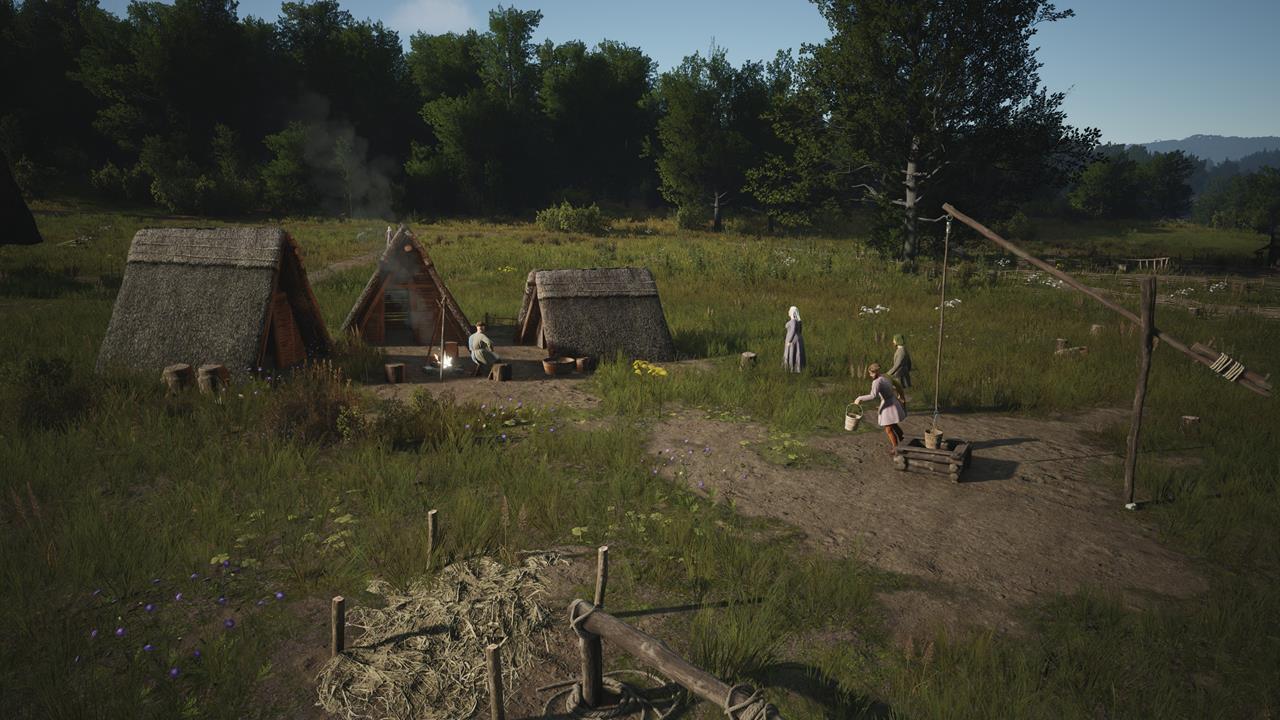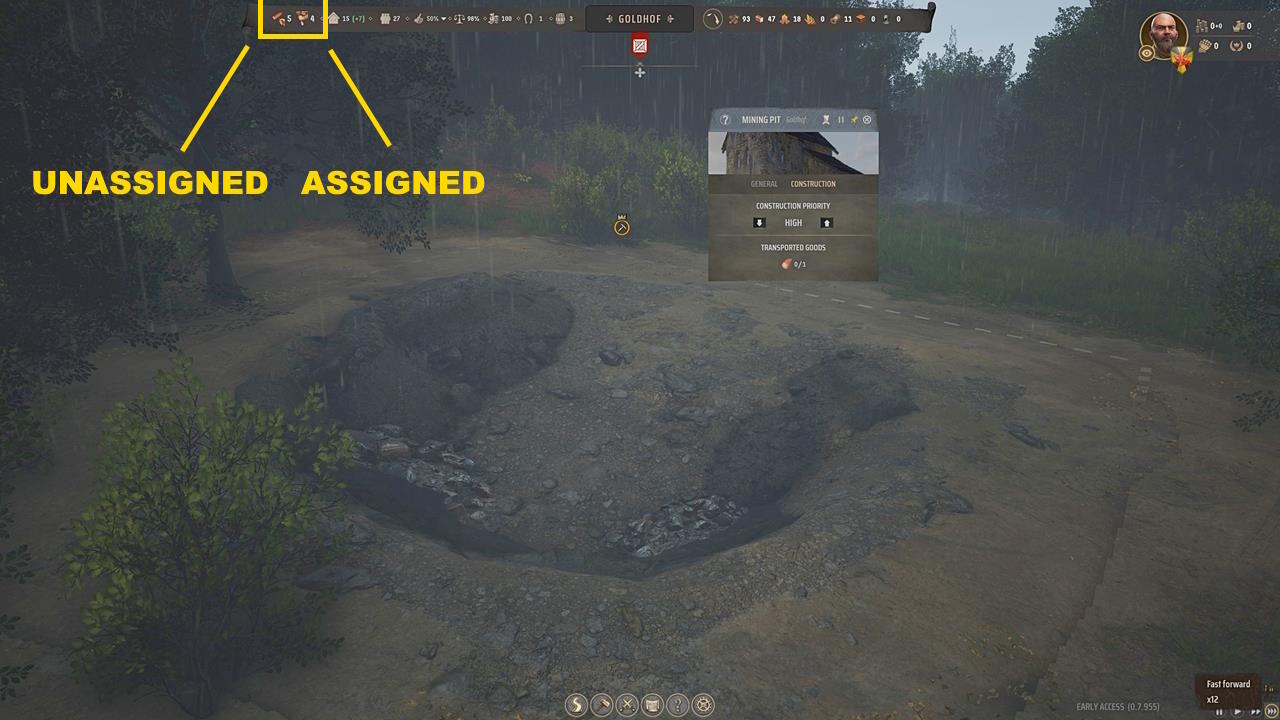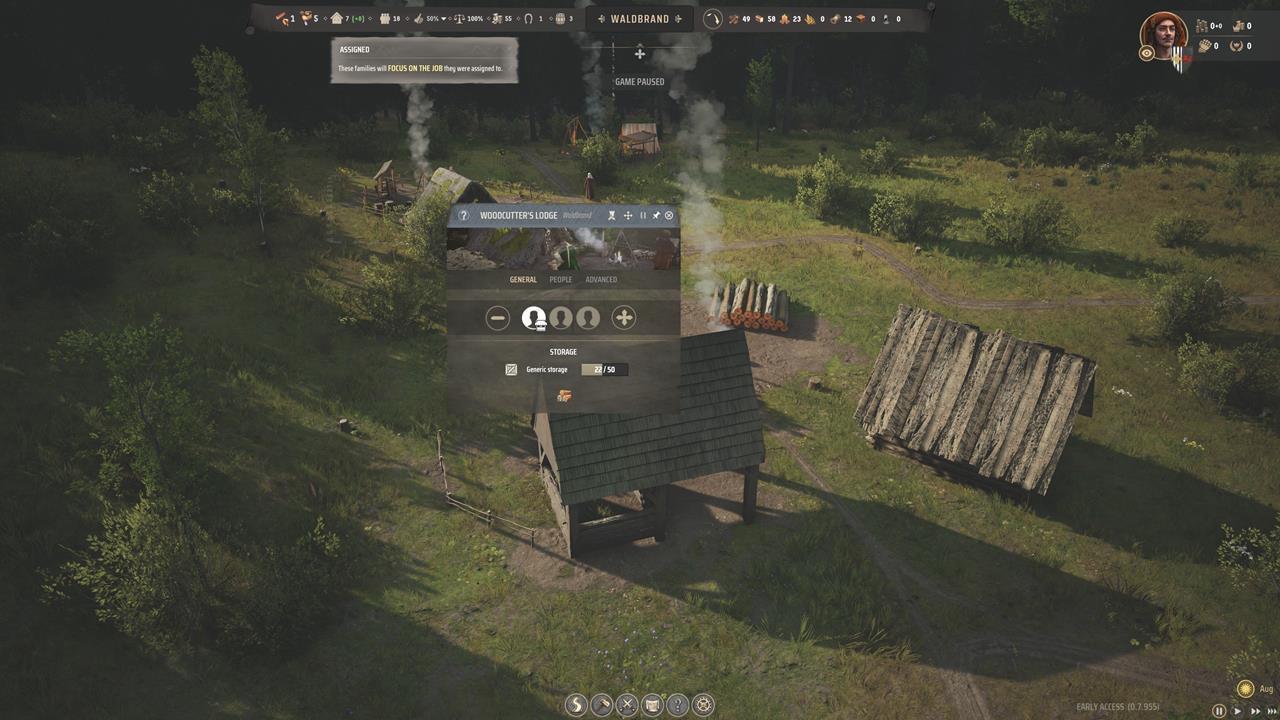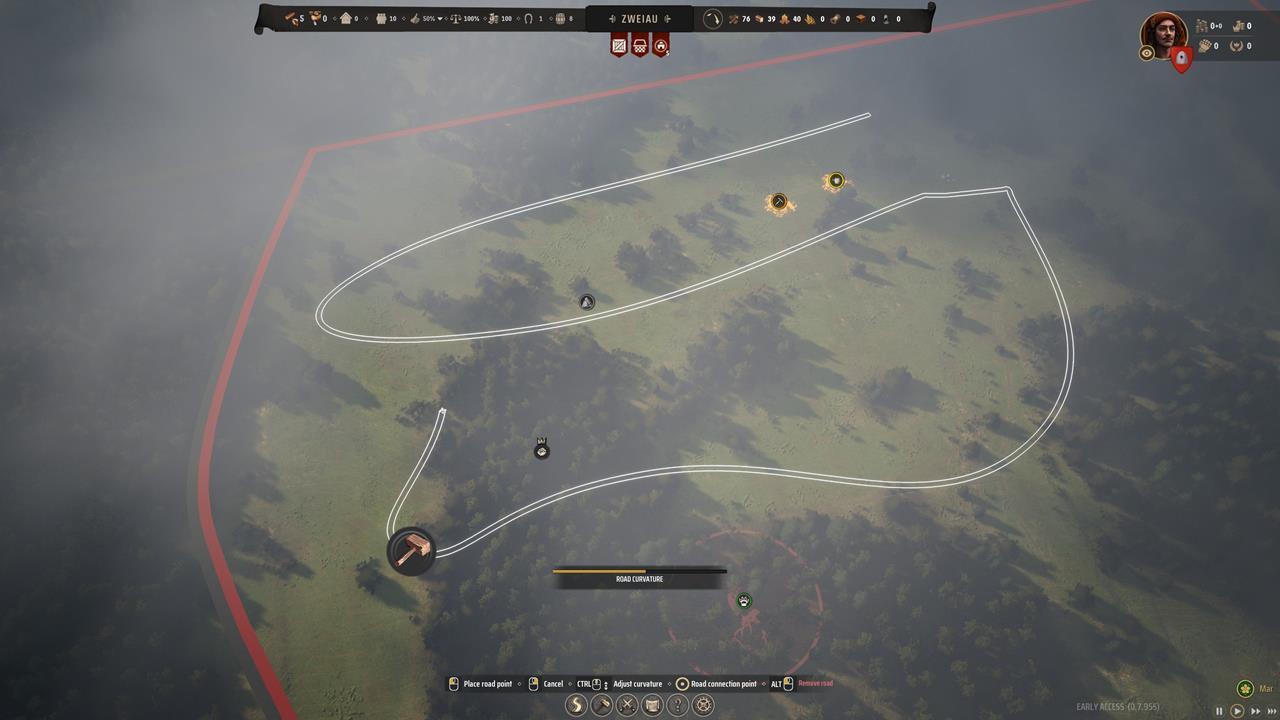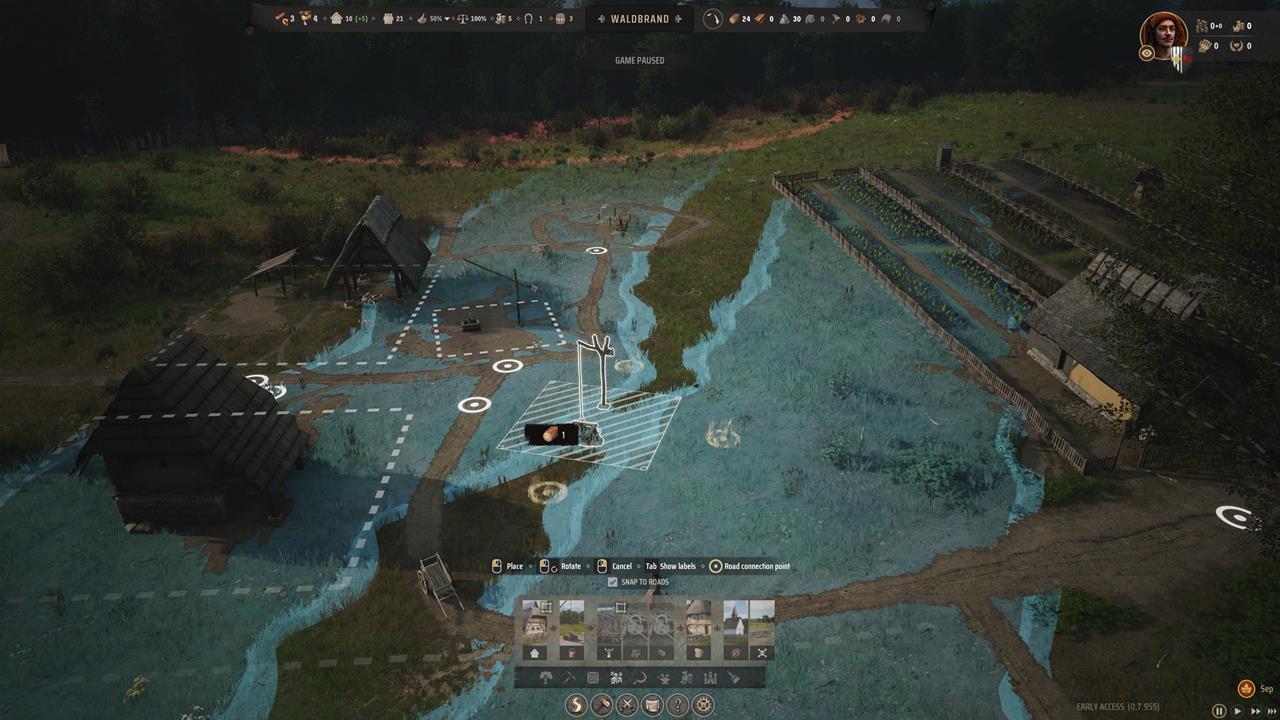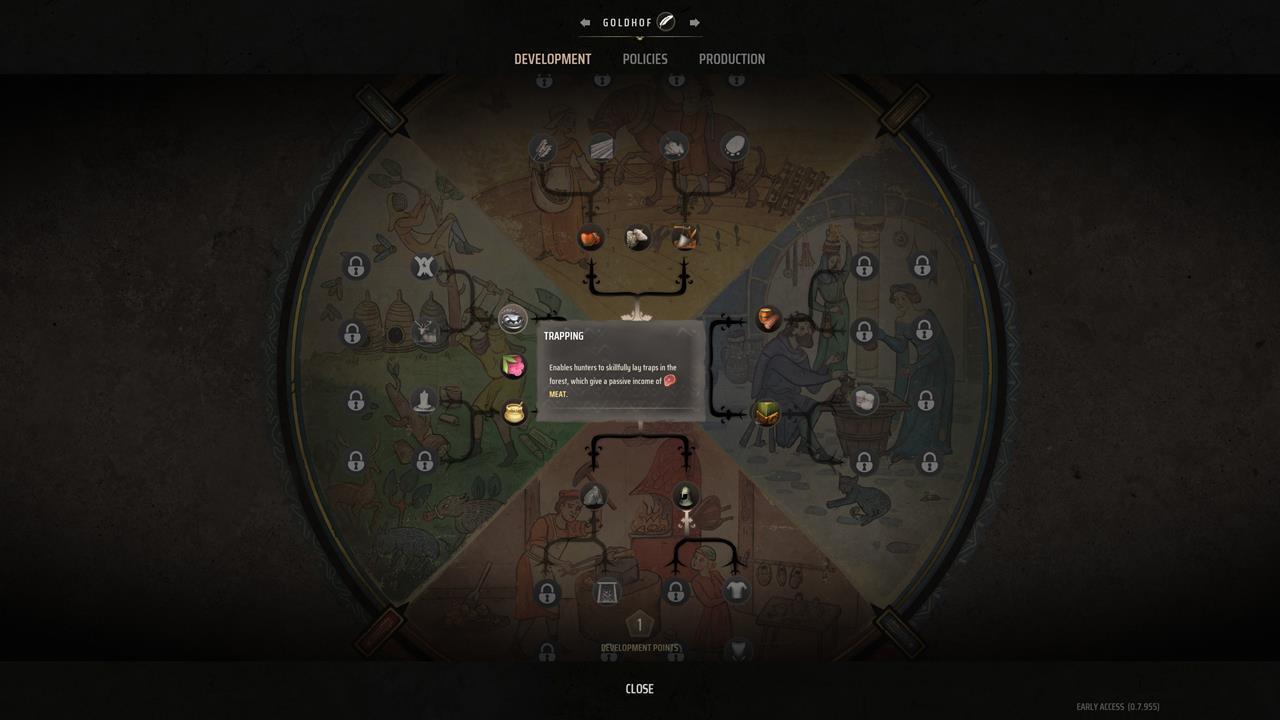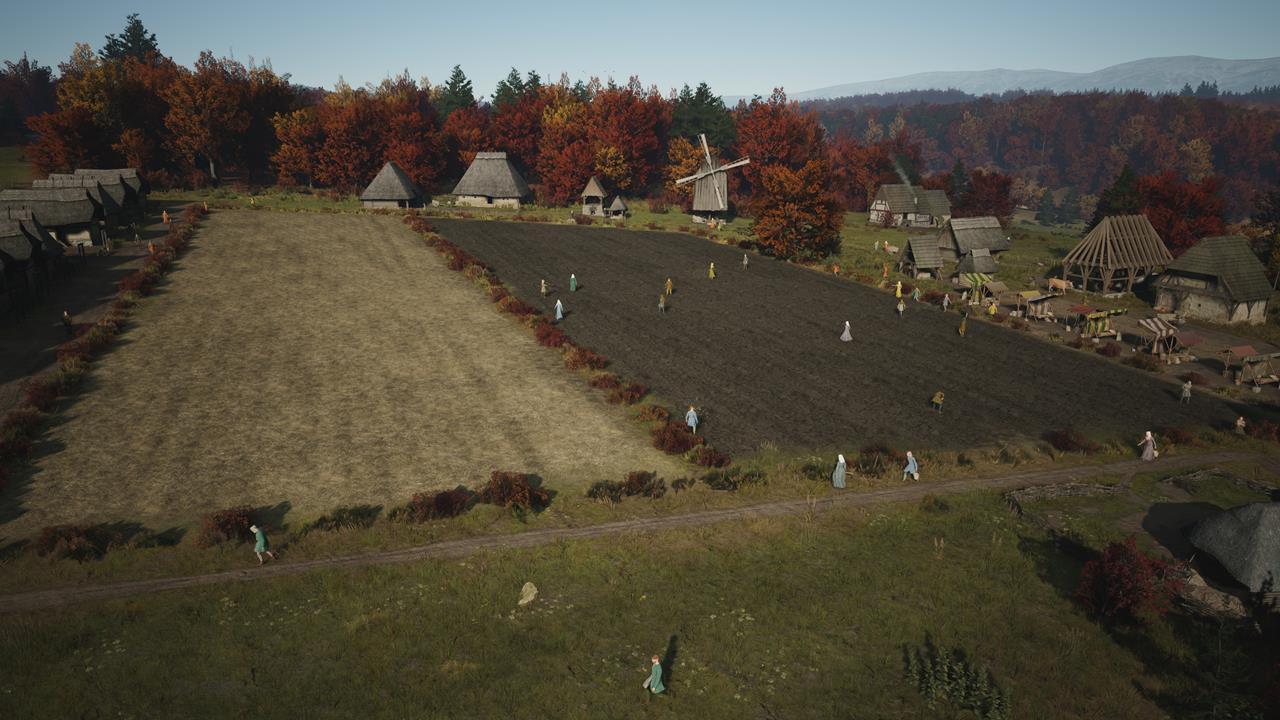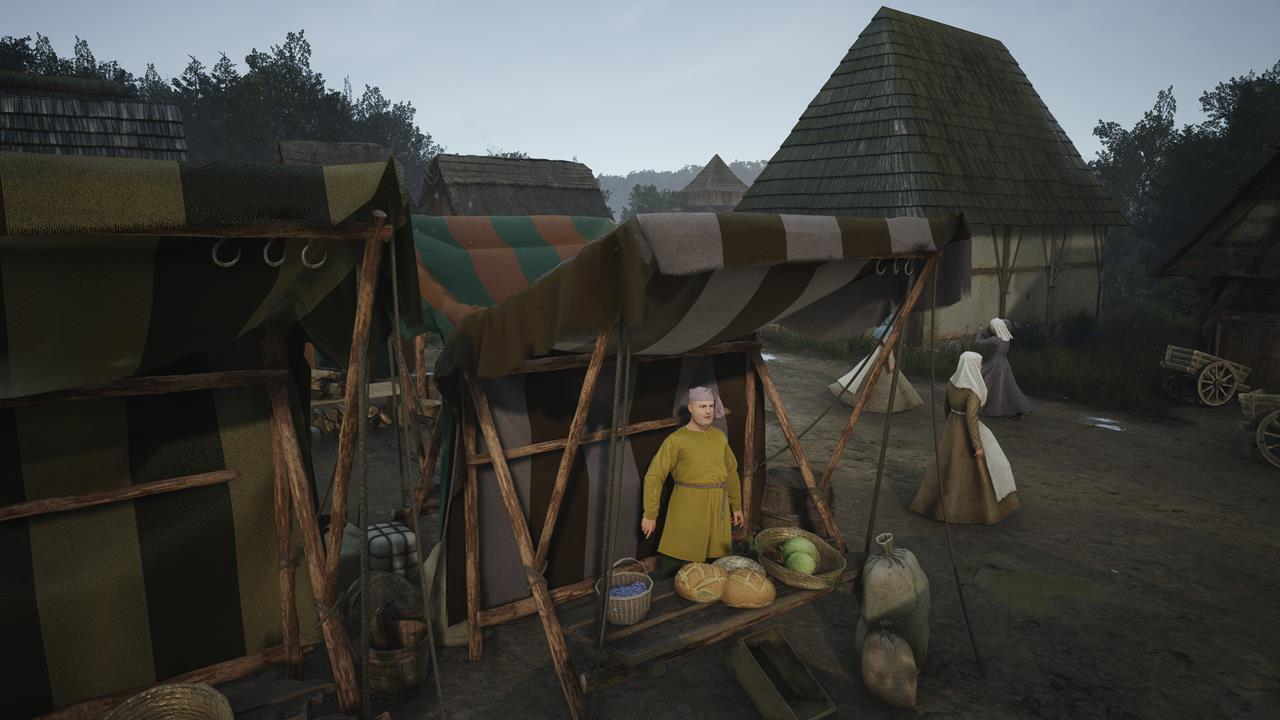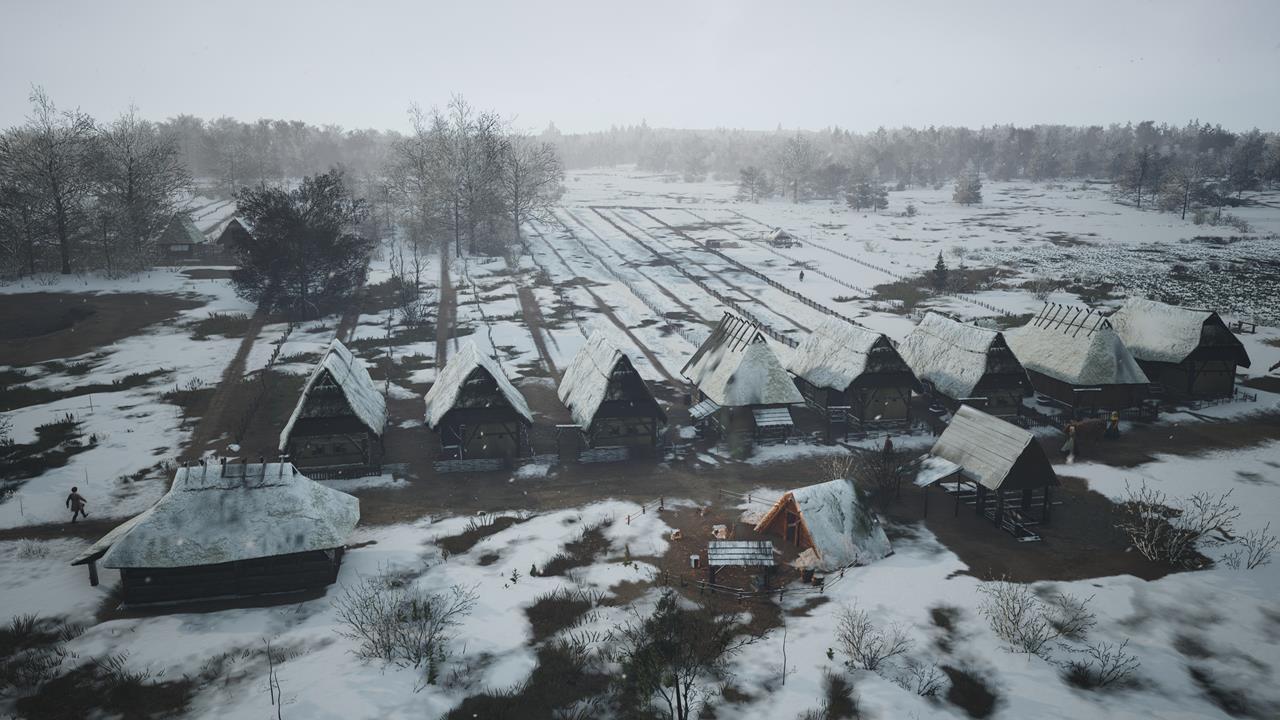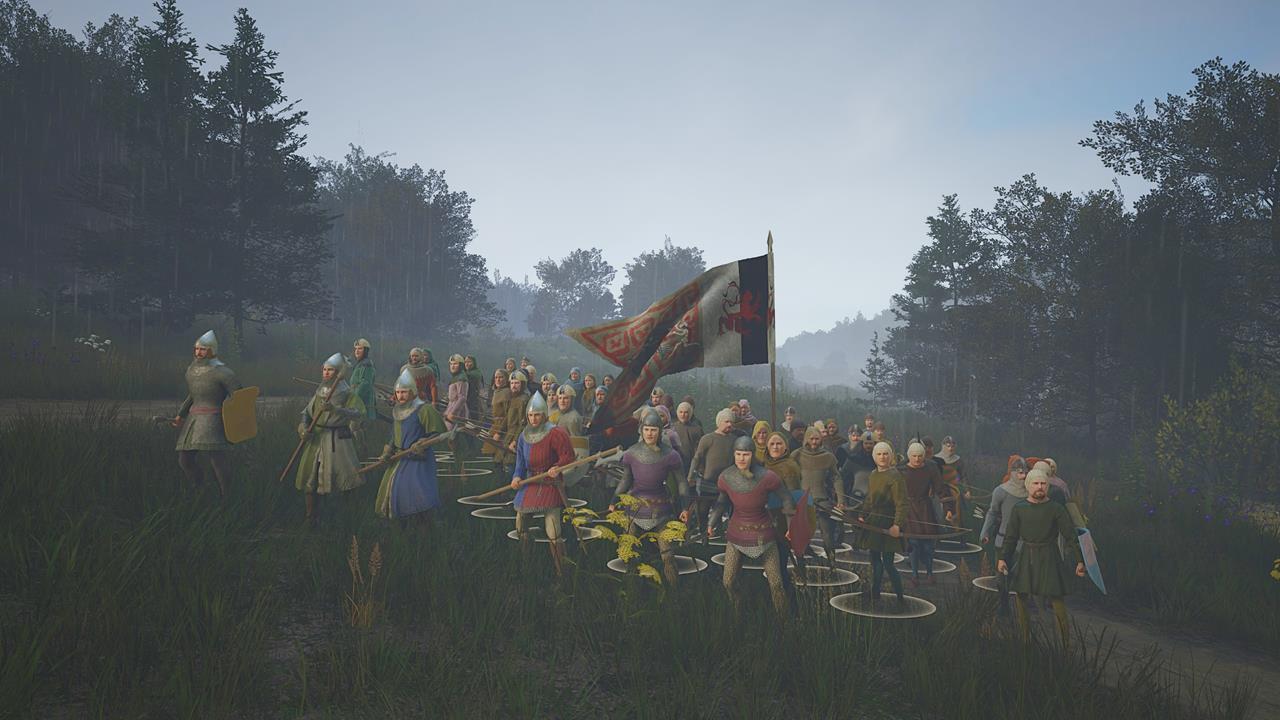14 Things You Should Know Before Playing Manor Lords
GameSpot may receive revenue from affiliate and advertising partnerships for sharing this content and from purchases through links.
Manor Lords starts with you leading a group of vagabonds out in the wilderness. From humble beginnings, you might eventually bring peace and prosperity to your people. Of course, the journey will be long and arduous. Here's our guide Manor Lords beginner's guide with several tips to help you start your run.
14 tips you should know before you play Manor Lords - Beginner's guide
Our Manor Lords beginner's guide discusses some of the basic mechanics that you're bound to encounter within the first few hours of starting your playthrough. We also have tips to aid you in preparation for harsh winters and ferocious medieval battles.
Choose a game setup that focuses on city-building
Manor Lords is city-builder first, medieval warfare strategy second. This means you're going to spend most of your time managing your village in order to help it grow into a bustling town. As such, we recommend choosing difficulty settings that limit the number of enemies you face.
For instance, you can turn off raider frequency so that your base doesn't get ransacked. Likewise, you can have an off-map adversary (i.e. an AI-controlled baron) with a more passive behavior. Your first couple of runs are thus spent learning about the mechanics and focusing on the management/sim aspect. You can learn more in our game setup/difficulty guide.
Check the map for available resources
As soon as you begin your Manor Lords campaign, zoom out to see the rest of the world map. The area highlighted in red is the region you control. The rest are unclaimed lands (unless you have an AI-controlled opponent with their own domains). The world map helps you ascertain the types of resources in your territory, including mineral deposits and food sources.
Set construction priority to high and speed up the time
Construction in Manor Lords is done by unassigned families (i.e. they are not assigned to manage buildings or specific tasks). You can see this in the upper-left portion of the information bar at the top of the screen. For the most part, you should have at least one unassigned family to help with construction duties.
Apart from that, you need to be mindful of all the construction that's taking place in your settlement. That's because workers might start going all over the place, and nothing ever gets done. We recommend choosing "High" priority for one project at a time.
Don't forget to assign families to gathering or production buildings that are constructed
In relation to the above, don't forget that most buildings you construct need to have at least one family assigned for it to function. This is done by selecting a building and clicking on the plus (+) icon.
These assignments aren't set in stone, so you can always change them freely depending on your needs. For instance, if you require a lot of timber, then you should have more people managing the Logging Camp. Conversely, if you've already collected all the resources from a deposit, then you probably don't need half a dozen villagers handling that task.
Note that buildings also serve another function in that families will automatically erect stalls at the marketplace. These stalls have goods produced from said structures, which are then used for further developments.
Establish a road network
Like other management and economic sim games, Manor Lords uses a road network system when it comes to workers moving around and goods being delivered. One nifty facet here is that roads are completely free--they don't cost any materials at all. You might want to plan ahead by creating a road network that zigzags across an entire region, close enough to most resource deposits.
Manage your Burgage Plots and backyard extensions
Burgage Plots refer to housing and lands where your villagers live. An interesting tidbit is that the game isn't particularly strict when you create these plots. In fact, it's possible to have Burgage Plots with uneven shapes or angles (i.e. following the curvature of roads).
Another important mechanic to remember is that Burgage Plots can have backyard extensions. Some examples include Vegetable Gardens and Chicken Coops that produce food, as well as various workshops that create weapons and armor. It's basically a way for residents to contribute to the settlement's growth.
Take note of citizen needs depending on the Burgage Plot level
Burgage Plots also have tiers/levels (i.e. starting at level 1 and maxing out at level 3). If you plan on upgrading these buildings, then you need to meet certain requirements. For instance, being connected to a well via a road network is one such basic requirement. Other prerequisites include taverns that serve ale and different types of clothing sold at the marketplace.
As you meet these requirements, you also increase approval and population. From there, you'll be able to upgrade each Burgage Plot structure. In turn, this adds to your overall tally for the settlement level (which counts the number of Burgage Plots of a particular tier). You can learn more in our town upgrades guide.
Unlock powerful bonuses from the Development panel
Each time your settlement reaches another level, you earn a Development Point. This can be spent on various perks found in the Development tab (i.e. click on the name of your town at the top of the screen). There are many powerful boons here, including doubling the yields of resources, unlocking high-end armors for your troops, and giving you access to additional structures or extensions.
Make use of oxen and storage for logistics
Workers carry around so many materials and resources, and running while lugging around a cart just won't cut it. That's why we suggest ordering additional oxen. This can be done via the Hitching Station/Small Stable. Oxcarts can certainly speed up logistics when bringing goods from one building to a manufactory.
In relation to this, we advise you to construct Storehouses and Granaries. The former is used to keep general goods, such as planks, timber, iron ore, and others. The latter, meanwhile, is for perishable goods like grain and wheat.
Plan ahead when it comes to farming
Since you rule a medieval village, you'll no doubt have to manage farmlands as well. You can choose from various crops, such as wheat, barley, and flax, which are then used to create other goods. For example, wheat is turned into grain, then flour and, finally, bread. Flax, meanwhile, is turned into linen and, eventually, clothes and gambesons.
Aside from this, you should be mindful of the soil's fertility. That's where the crop rotation mechanic comes into play. We discuss this and more in our farming and harvests guide.
Have more than enough food and fuel
You've got a village that gradually grows, but you still need to think of resources that get constantly consumed depending on the number of Burgage Plots in your settlement. These are fuel and food:
- Fuel comes from firewood and charcoal, and is used to keep the functions of certain buildings active.
- There are many sources of food in the game. Try to have more than enough to prevent citizens from starving.
Amass Regional Wealth and Treasury
As you slowly see your village achieve your prosperity, you have to think of more ways to earn money. There are two resources to take note of. The first is Regional Wealth, which pertains to the value gradually generated by villagers. The second is the Treasury, which refers to your personal coffers. These have different uses and methods of acquisition, and we discuss them further in our Regional Wealth and Treasury guide.
Furthermore, since we're on the subject of amassing a lot of money, we encourage you to make use of Trading Posts. Enacting minor trades and establishing trade routes, especially when exporting surplus goods, are great ways to earn more gold.
The seasons of Manor Lords and preparing for a harsh winter
There are four seasons in Manor Lords. Spring is usually when seeds are planted, summer is when droughts may occur, and autumn is when crops are harvested. Winter, however, is something you need to prepare for during your playthrough. You'll want to have a lot of fuel and food stockpiled, as well as some herbs to alleviate illnesses.
Get ready to claim new lands and engage in medieval battles
While most of your time in Manor Lords is spent developing your settlement, there will be instances when you have to engage in combat. Depending on the game settings, this can happen when you get attacked by raiders, encounter bandits in other territories, or fight an AI-controlled baron.
Prior to these battles, you have to muster your army, and there are three troop classifications that are part of your forces: militia (i.e. armed villagers), retinue (i.e. men-at-arms recruited once you have a Manor building), and mercenaries (i.e. soldiers for hire that you pay each month). We discuss these details in our army and combat guide.
Last but not least, these conflicts will likely lead you to expand further to new lands. You'll have to build up influence as you send settlers to capture territories in your name. You can learn more in our influence and claiming regions guide.
That does it for our Manor Lords beginner's guide. These are just a few tips to help you on your way to achieving glory in the medieval age.
Manor Lords is currently an early access game. As such, some mechanics and features may change in due course. In the meantime, you can take a look at other tips and strategies in our guides hub.
